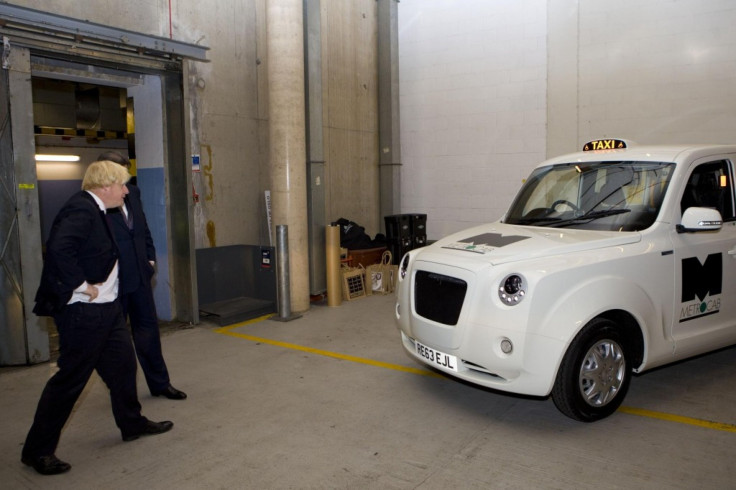Ecotive Metrocab: The First Electric ‘Hackney Carriage’ Hits London Streets In Mid-January In Test Trials

The London Taxi Company, which has had a lock on the British taxi industry for decades with its iconic black cabs, is about to get some competition from British sports car manufacturer Frazer-Nash, which will roll out its white electric Ecotive Metrocab in mid-January.
Few details are available regarding the specs, but we do know the vehicle boasts up to 75 miles per gallon from a hybrid-electric powertrain pushed by an electric motor for each rear wheel and a gas engine to back it up. The mileage is considerably higher than the 20 mpg to 30 mpg from the traditional black diesel-driven taxi, also known locally by the very British term hackney carriage.
Surrey, U.K.-based Frazer-Nash, which has been working on the taxi project since 2007 through its subsidiary Ecotive Ltd., says the vehicle will go into service by the middle of January.
London Mayor Boris Johnson has been pushing to create a so-called “ultra-low-emissions zone” in London by introducing hybrid buses and low-emission freight lorries and promoting electric-vehicle use. But like most cities, London is still ill-prepared for an influx of 100 percent electric vehicles.
Last week, Johnson was given a preview road test of the vehicle, officially known as the Range-Extended Electric Metrocab. Cabbies will be able to charge the vehicles from home from a standard outlet, suggesting it could take hours for the vehicle to be fully charged. No news yet on whether there will be a quick-charging option, but the hybrid powertrain means drivers won’t be stranded by the side of the road should the batteries run out of juice. Ecotive says the car will lower fuel costs for drivers while mitigating air contamination.
Like many of the new taxicabs entering the market, such as Nissan’s NV200 “Taxi of Tomorrow,” the Metrocab boasts ample interior space to seat six, plus luggage, while providing panoramic views.
The vehicle is ready for the streets and will begin trial runs next month. It is scheduled to go on sale in early 2014.
In related news, The Daily Mail reported earlier this month that demand for electric-vehicle charging in London is low. After spending 8.3 million British pounds ($13.6 million) to install nearly 1,400 EV charging points citywide, the Daily Mail learned that 75 percent of the stations – 1,043 of them – were not used between July and September.
Various factors mitigate for the widespread adoption of EVs, including price, EV range per charge, the speed at which cars can be recharged, and ease of access to charging outlets.
© Copyright IBTimes 2025. All rights reserved.






















